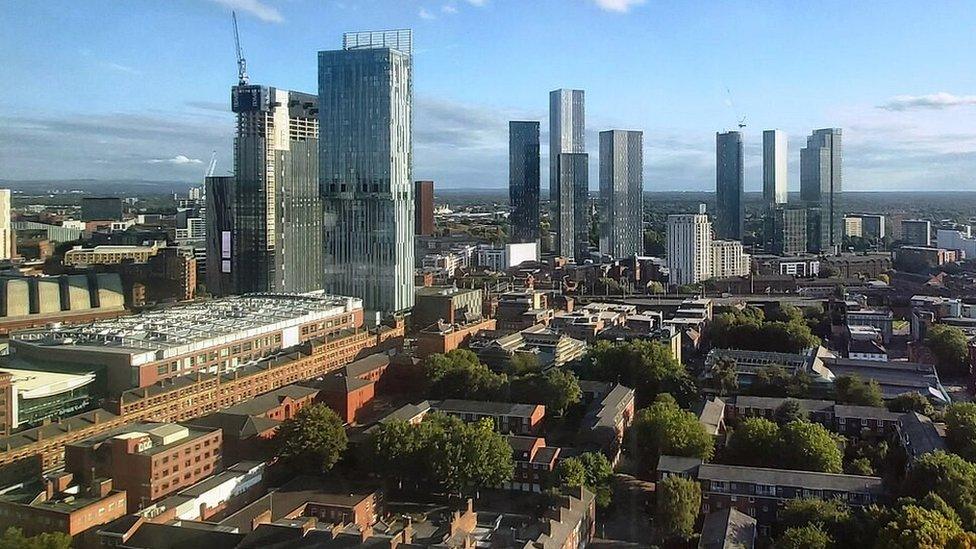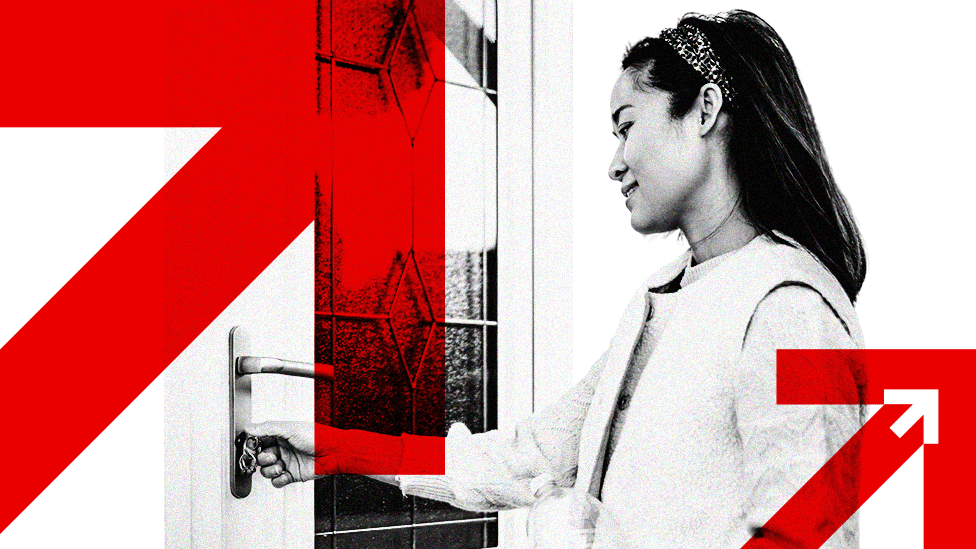Greater Manchester councils to raise tax 5% and cut £100m in spending
- Published
- comments

The majority of Greater Manchester's councils are to raise local taxes by about 5%
Councils across Greater Manchester say they have been forced to cut about £100m in spending while hiking local taxes by around 5%.
The majority of them have set budgets for the next financial year, with Bury, Oldham, and Trafford describing the process as the "toughest yet".
Ten councils in the region have had to find £97m in savings amid rising costs.
"We're just cutting, cutting and cutting", said Tameside's Labour Council leader Ged Cooney.
His authority has planned a 4.99% council tax rise alongside £12m in spending cuts, after budgeting for a £37.5m increase in inflation and demand for services.
The financial picture in Tameside is reflective of many councils across Greater Manchester, where outgoings are outstripping income due to rising costs.
Balance the books
Mr Cooney told BBC Radio Manchester that his council did not have the funding to deliver "desperately needed" services unless residents carried a "tax burden" they could "ill-afford".
The majority of the region's councils have agreed a 4.99% rise in local taxes, two per cent of which is ringfenced specifically for adult social care services.
Bury Council leader Eamonn O'Brien said "sooner or later, we will be reduced to providing only the services that we have to by law."
His authority plans to use about £15m from reserves and £7.5m "in savings, efficiencies and income generation" to balance the books for the 2024-2025 year.
Oldham is one of the worst affected areas with 97 jobs to be cut, including road maintenance staff and children's social workers, while Bolton Council is targeting cuts of £8.5m.

Kevin Fitzpatrick, BBC Radio Manchester political reporter
This year's budget setting process is just the latest instalment of a bruising annual exercise in making cuts and finding savings that are not obviously there.
Council leaders in Greater Manchester have long claimed the low-hanging fruit is long gone, and find themselves looking to reduce services they'd always said should be protected.
They are increasingly having to dip into reserves to plug gaps in the finances, and the inflationary pressures of recent years have added to the problems caused by the rising cost of children's services and adult social care.
The public may have little sympathy, and feel frustrated that every council tax rise sees them asked to pay more for less.
But in 2023, the situation became so acute that, in December the Local Government Association warned that one in five UK council leaders believed their authorities faced effective bankruptcy in 2024.
As a perfect storm of financial headwinds gains momentum, it appears that worrying trend could be set to continue.

Council tax increases of 4.99% have also been approved in Stockport and Trafford, where £18m in savings has been made.
A Department for Levelling Up, Housing and Communities spokesman said government support for councils had been increased by 7.5% to £64.7 billion for the next financial year in recognition of the challenges they face.
Manchester City Council and Salford Council are among those set to finalise their budgets in the next couple of weeks.

Why not follow BBC Manchester on Facebook, external, X, external and Instagram, external? You can also send story ideas to northwest.newsonline@bbc.co.uk
Related topics
- Trafford Metropolitan Borough Council
- Bury Metropolitan Borough Council
- Oldham Council
- Manchester City Council
- Bolton Metropolitan Borough Council
- Council tax
- Manchester
- Salford
- Stockport Metropolitan Borough Council
- Tameside Metropolitan Borough Council
- Rochdale Metropolitan Borough Council
- Wigan Metropolitan Borough Council
- Local government
